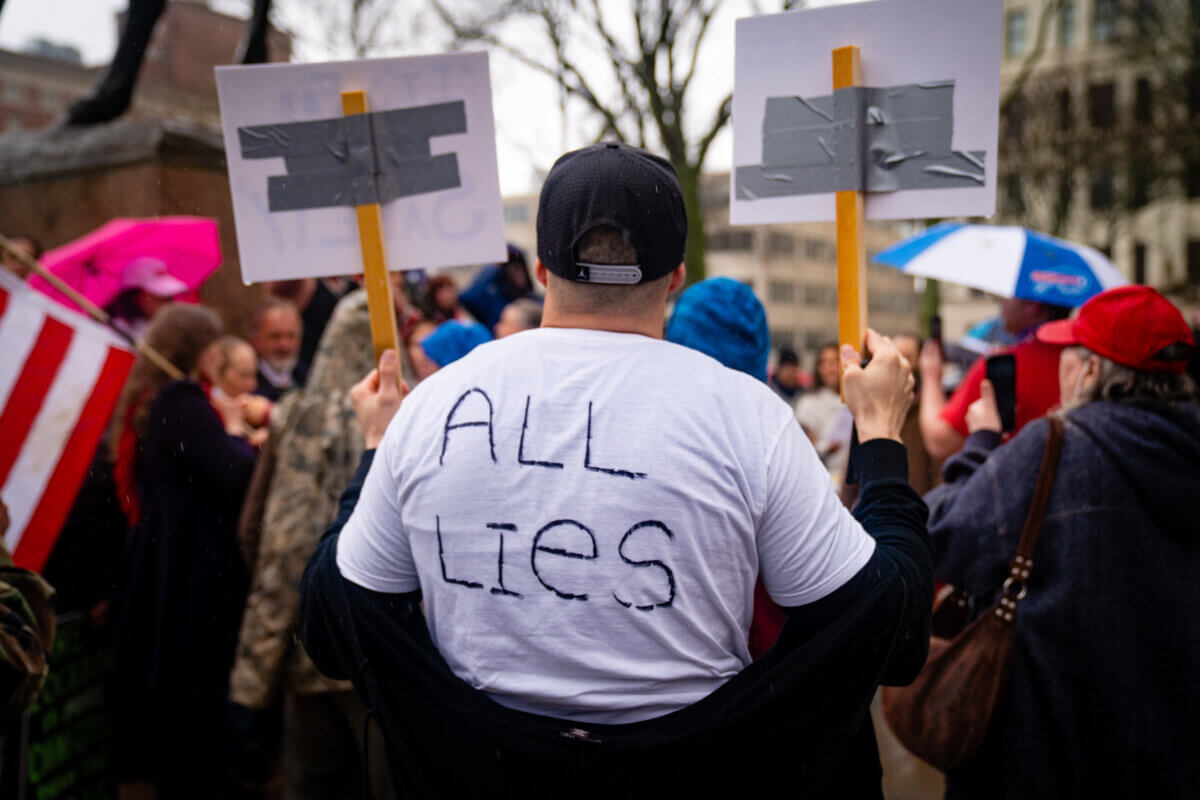ATLANTA — While a good conspiracy theory can be both strange and somewhat entertaining — a new study finds that truly believing in these plots says something more about your personality. Researchers suggest that individuals who believe in conspiracy theories tend to exhibit traits of insecurity and paranoia. These individuals are also prone to emotional volatility and impulsivity, according to the study’s findings.
However, psychologists affirm that not all of these individuals are mentally unstable. They discovered that a combination of personality traits and motivations could make individuals susceptible to conspiracy theories. These factors comprise strong reliance on intuition, feelings of antagonism and superiority towards others, and the perception of threats in their environment.
The study, published in the Psychological Bulletin, offers a “nuanced” insight into the factors that drive conspiracy theorists.
“Conspiracy theorists are not all likely to be simple-minded, mentally unwell folks – a portrait which is routinely painted in popular culture,” says Shauna Bowes, a doctoral student in clinical psychology at Emory University, in a media release. “Instead, many turn to conspiracy theories to fulfill deprived motivational needs and make sense of distress and impairment.”
Bowes acknowledges that prior research on conspiracy theorists has primarily focused on personality and motivation as separate entities. The current study, however, aims to integrate these factors to understand why people believe in conspiracy theories more comprehensively.
The research team reviewed data from 170 studies involving over 158,000 participants, primarily from the United Kingdom, United States, and Poland. The focus was on studies that evaluated participants’ motivations or personality traits associated with conspiratorial thinking.
The study revealed that people’s belief in conspiracy theories is often driven by a need to understand their environment and a desire to view their communities as superior to others. Contrary to expectations, Bowes states that a need for closure or a sense of control were not the most potent motivators to endorse conspiracy theories. Instead, they found evidence suggesting that social relationships motivated individuals to believe in specific conspiracy theories.
For example, participants who perceived social threats were more likely to believe in event-based conspiracy theories, such as the theory that the U.S. government orchestrated the September 11th terrorist attacks, rather than abstract theories positing that governments harm their citizens to maintain power.

“These results largely map onto a recent theoretical framework advancing that social identity motives may give rise to being drawn to the content of a conspiracy theory, whereas people who are motivated by a desire to feel unique are more likely to believe in general conspiracy theories about how the world works,” according to Bowes.
The researchers also found that certain personality traits, including antagonism toward others and high levels of paranoia, make individuals more prone to conspiratorial thinking. Those strongly inclined towards conspiracy theories also tended to be insecure, paranoid, emotionally volatile, impulsive, suspicious, withdrawn, manipulative, egocentric, and eccentric.
The “Big Five” personality traits – extraversion, agreeableness, openness, conscientiousness, and neuroticism – showed a weaker correlation with conspiratorial thinking. However, the researchers stress this does not imply that general personality traits are irrelevant to a predisposition towards conspiracy theories.
Bowes recommends that future research on conspiratorial thinking should consider its complexity and the diversity of relevant variables. An exploration of the relationships among conspiratorial thinking, motivation, and personality can provide a more comprehensive understanding of the psychology behind conspiratorial ideas.
South West News Service writer Mark Waghorn contributed to this report.
You might also be interested in:
- Belief in COVID conspiracy theories growing as trust in Dr. Fauci dips, survey reveals
- Birdsong can reduce anxiety and paranoia, study reveals
- Uncomfortable in your own skin? Average person feels insecure 5 times every day





Sounds like an attack on evaluating situations.
Complete attack on critical thinking. And who is the author? What a shameful display of arrogance.
I agree with the above comments. Maybe blindly believing in conspiracy theories are traits of the insecure/paranoid. But folks who routinely question the constant deluge of nonsense that surfaces these days are smart. I would think the Study Finds staff would know that.
In short, the new study by Wood and Douglas suggests that the negative stereotype of the conspiracy theorist – a hostile fanatic wedded to the truth of his own fringe theory – accurately describes the people who defend the official account of 9/11, not those who dispute it.
Recent studies by psychologists and social scientists in the US and UK suggest that contrary to mainstream media stereotypes, those labeled “conspiracy theorists” appear to be saner than those who accept the official versions of contested events.
“The CIA’s campaign to popularise the term ‘conspiracy theory’ and make conspiracy belief a target of ridicule and hostility must be credited, unfortunately, with being one of the most successful propaganda initiatives of all time.”
In other words, people who use the terms “conspiracy theory” and “conspiracy theorist” as an insult are doing so as the result of a well-documented, undisputed, historically-real conspiracy by the CIA to cover up the JFK assassination. That campaign, by the way, was completely illegal, and the CIA officers involved were criminals
No wonder the anti-conspiracy people are sounding more and more like a bunch of hostile, paranoid cranks.
By Dr. Kevin Barrett
“The most dangerous man, to any government, is the man who is able to think things out for himself, without regard to the prevailing superstitions and taboos.” — H. L. Mencken, 1919
“One believes things because one has been conditioned to believe them.” –
Aldous Huxley – Brave New World
“The individual is handicapped, by coming face-to-face, with a conspiracy so monstrous, he cannot believe it exists. The American mind, simply has not come to a realization of the evil, which has been introduced into our midst . . . It rejects even the assumption that human creatures could espouse a philosophy, which must ultimately destroy all that is good and decent.” —
FBI Director J. Edgar Hoover, 1956
I suppose this paid for tripe is considered ‘science’.
Far too many people trusted in man and science both of whom lie and manipulate whereas I chose to trust in God and His amazing immune system.
So study finds, have you bothered to study the so-called conspiracy theories from early 2020 and compared them to today?
“The people declining the vaccine are the ones that have the most critical thinking, the most discernment — the strongest minds and bodies around us. They’re the last people that need psychiatric medication.”
-Dr McCullough
This article, More propaganda brainwashing. Conspiracy theorist = brave, free, wise, badge of TRUTH & Honour, intelligent critical thinking. PJ London excellent comment.
Also Dr. McCullough Right on. Thank you. Grateful Blessings.
They conveniently left out the other side of the coin.
Believing that all conspiracy theories are false is more common among people who are completely disconnected from the land of reality.